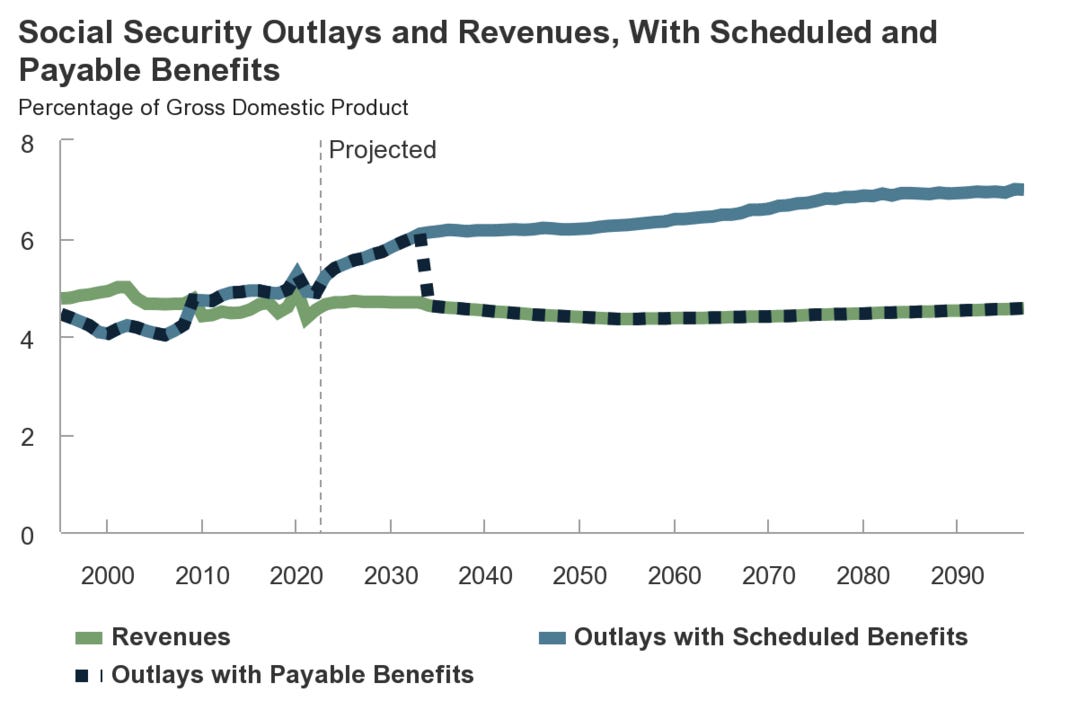One of my motivations for creating this blog is questions from family members and friends that often prompted me to delve deeper into various topics.
In response to my recent post "Capitalist Conundrum: Why Isn't the World's Only Successful Economic System Winning More Hearts?," a family member inquired, "What about Sweden? Isn't Sweden socialist?"
In the Zitelmann study I discussed in my previous post, Sweden ranked 10th in support for capitalism out of 34 countries. Replace "capitalism" with "economic freedom," and Swedish support increases by 41%.
In the Heritage Foundation's annual ranking of economic freedom, Sweden is the 10th highest in the world, surpassing the 25th-ranked USA. By this metric, Sweden exerts less government control over its economy than the USA does.
Sweden is misidentified as a socialist country. Socialism is defined as a system where the means of production, distribution, and exchange are owned by the public rather than by private individuals. Sweden, however, maintains a low level of government control over its economy.
Many conflate "socialism" with a larger governmental role in wealth redistribution, often via higher taxation. Sweden imposes a higher tax burden than the USA. In 2018, the total tax revenue in the USA was about 24% of the income, while in Sweden it was about 80% higher at 43% of income. France, Denmark, and Belgium collect even more taxes than Sweden.
Now is a good time to interject that the current low tax burden in the USA may not prove fully sustainable. The Congressional Budget Office estimates that by 2033, US federal spending will outstrip tax revenue by 3.4% of GDP. To bridge our primary deficit over the next decade, we would need to cut Social Security, Medicare, and Medicaid by 25%, raise taxes by 18%, or implement a combination of both.
High taxes do not equate to socialism. Sweden, and Nordic countries at large, exemplify capitalist success stories.
From 1870 to 1970, Sweden experienced robust growth rates, outpacing most developed countries except Japan, thanks to its small government and open economy. However, a shift towards socialist policies post-1970, when Swedes briefly voted the Social Democratic party to power, led to a bloated government, increased taxes, and more regulations, stalling private-sector job growth and prompting successful businesses and entrepreneurs to leave. This era ended in the early 1990s with a severe financial crisis, after which political leaders cut public spending, taxes, and regulation, restoring economic growth and competitiveness.
Sweden has undergone significant economic and social changes since the 1980s, as it faced the challenges of globalization, neoliberalism, immigration, and populism which has eroded support for social democracy. Sweden has adopted more market-oriented and pro-business policies, such as deregulation, privatization, fiscal discipline, and free trade, which have increased the role and power of the private sector and reduced the scope and quality of the public sector.
Historically, Sweden has leveraged its higher tax rate to fund a comprehensive social safety net, a strategy more viable in small, homogeneous, high-trust societies. With just 10 million people, Sweden has roughly the population of the Chicago metro. It has also historically been one of the world's least ethnically diverse nations, whereas the US is considerably more diverse and the second most diverse large country after Indonesia.
As Sweden has integrated 2 million immigrants, now 20% of the population, rising social tensions have undermined support for Sweden's traditionally robust social welfare system. The Social Democratic Party has lost votes and seats to other parties, especially the far-right Sweden Democrats.
The differences between the USA and Sweden are profound, with different values, economic systems, and social norms. The USA is known for valuing individualism and ambition within a large and diverse economy, while Sweden is recognized for its collective ethos, environmental concerns, and broader social welfare. Policies that work for a small, ethnically homogeneous country don’t necessarily scale up to a large, diverse nation.
Similarities between the USA and Sweden:
Democratically elected governments with elections every 4 years
Constitutional guarantees of free speech
Technologically advanced and highly connected societies
Significant differences between the two nations include:
The USA is 22 times larger in land area and has 32 times the population of Sweden
The USA boasts the world's largest economy, with a GDP per capita 14% higher than Sweden's (USA: $68,574, Sweden: $59,900)
As already mentioned, Americans pay approximately 28% of their income in taxes compared to 43% for Swedes
The USA has higher average wages ($74,738 vs. Sweden's $48,951)
Sweden has a lower Gini Index of inequality (29.3) compared to the USA (41.5)
A higher percentage of Americans (92%) complete high school compared to Swedes (84%)
Sweden's college education is free, yet students still graduate with an average debt of $15,000, in contrast to $28,400 in the USA
Comparing Sweden and the USA juxtaposes two fundamentally different countries with divergent demographics, values, and priorities. While both nations share democratic principles and indicators of human development, the scale of comparison is skewed—the USA's vast size and population, its ethnic diversity, and its individualistic values stand in stark contrast to Sweden's smaller, more homogenous society that prioritizes collective welfare. This dichotomy suggests that the economic and social models of Sweden are tailored to its unique characteristics and may not be replicable or even desirable for America.
Peace through understanding.
Edited for punctuation thanks to the feedback from one of our talented children.







And my reply to the LinkedIn comment:
As I wrote, I agree it is healthy for societies to study what works for other societies as inspiration for ideas that could work for us.
Sweden is more collective in their social approach in comparison to the more individualistic USA. The size and homogeneity of Sweden matters because collective societies inherently rely on higher levels of trust to function effectively. This trust is built through shared cultural practices, mutual aid, and consistent social interactions, which reinforce communal bonds and the sense of shared destiny.
https://www.jstor.org/stable/3086035
The population differences between the USA and Sweden matter because smaller, more homogenous communities exhibit higher levels of trust compared to larger, less homogenous ones. Smaller communities have a stronger sense of common identity, mutual understanding, a higher level of predictability in interactions. In contrast, larger and more diverse communities don't establish this level of cohesion and mutual understanding as a wider variety of backgrounds, beliefs, and experiences make it harder to develop trust and understanding.
https://scholar.harvard.edu/files/laibson/files/measuring_trust.pdf
There are no examples I can think of for collective approaches in smaller communities scaling up to work as effectively in larger communities.
Your assertion that citizens of Sweden are more satisfied with their country than in the US is hotly debated. The annual World Happiness Report attempts to rank countries, and for 2023 they rank Sweden 6th with a score of 2.276 vs. the USA 34th with a score of 2.935. We can't interpret these scores to indicate Swedes are 30% happier than Americans. There is a big statistical spread in these ranking, the 95% confidence interval for ranking of Sweden 4th to 13th and for the USA is 18th to 43rd. The authors pick a particular weighting of GDP per Capita, perceived social support, life expectancy, generosity, perceptions of corruption, etc. Pick a different weighting and you get a different result. The fact that Afghanistan is not ranked as the happiest country in the world leads me to question their methodology. Consistent with the impact of size, it is worth noting that by this ranking the USA is the happiest nation over 100 million population.
https://worldhappiness.report/ed/2023/world-happiness-trust-and-social-connections-in-times-of-crisis/#ranking-of-happiness-2020-2022
Measuring happiness by country is a complex task, fraught with difficulties. Happiness is subjective by nature and varies greatly among individuals based on cultural, social, and personal factors. Different cultures have varying interpretations of what constitutes happiness. Standardizing survey methods across diverse populations has proven impractical due to language nuances and differing societal norms leading to varied interpretations of questions and responses. This issue is compounded by the difficulty in capturing all aspects that contribute to happiness, such as emotional well-being, life satisfaction, and fulfillment, in a single metric. All these factors contribute to the complexity and potential inaccuracies in measuring and comparing happiness across countries.
https://anderson-review.ucla.edu/the-unhappy-quest-for-a-happiness-index/
We agree that Sweden has a higher tax rate on a broader spread of their nation than the US and uses those taxes to deliver more health, childcare, and education services to their citizens. This is consistent with their relatively higher collectivist history. My observation has been that US citizens consistently prioritize a more individualistic approach which has led to extraordinary income, growth, and innovation.
Sharing a response that a friend posted to LinkedIn:
Interesting read Ben, well written.
Some of your comparisons may not support your supposition that “...social models of Sweden are tailored to its unique characteristics, and may not be replicable ... for America.”
Why would the population difference matter? Sweden is ~3% of the US, let’s look at a metro 3% of Chicago: Waco. Would one expect few similarities? Chicago and Waco are the county seat for their respective counties. The form of government is similar: each has a mayor elected to a four-year term, Waco has six council members elected from districts, Chicago has 50 aldermen. Data suggests that governments with an order of magnitude differences in population can still function with a similar form of governance.
Sweden has a higher tax rate than the US. Sweden delivers more services (healthcare, childcare, education, etc.). Citizens of Sweden are more satisfied with their country than in the US. Tax rates don’t tell the story, what you get for the taxes is what matters.
In governmental policy, the sciences, medicine, etc., the engine of capitalism is adapting proven techniques to new problems. Learn what others are doing that is successful for them, understand how we could apply it, and adapt it to make it work for us.